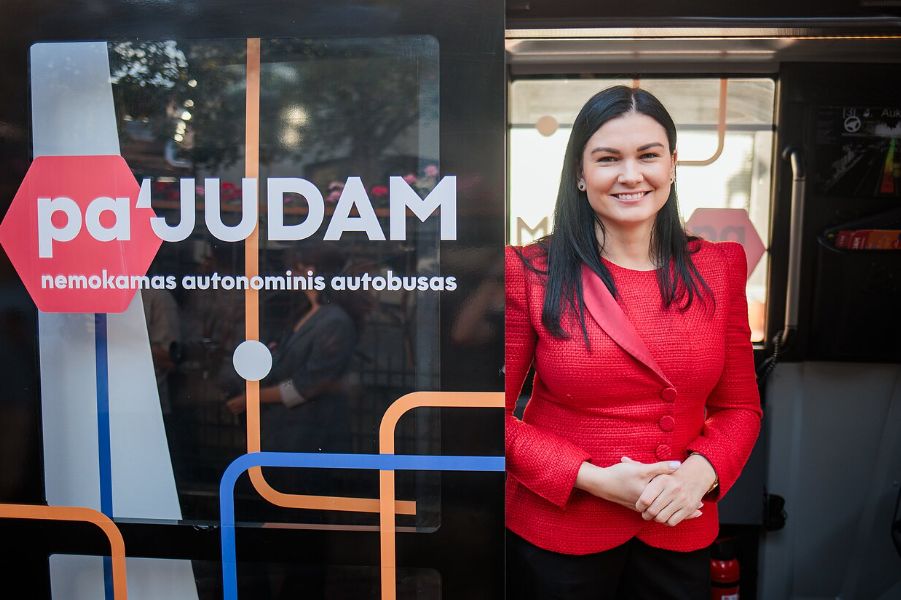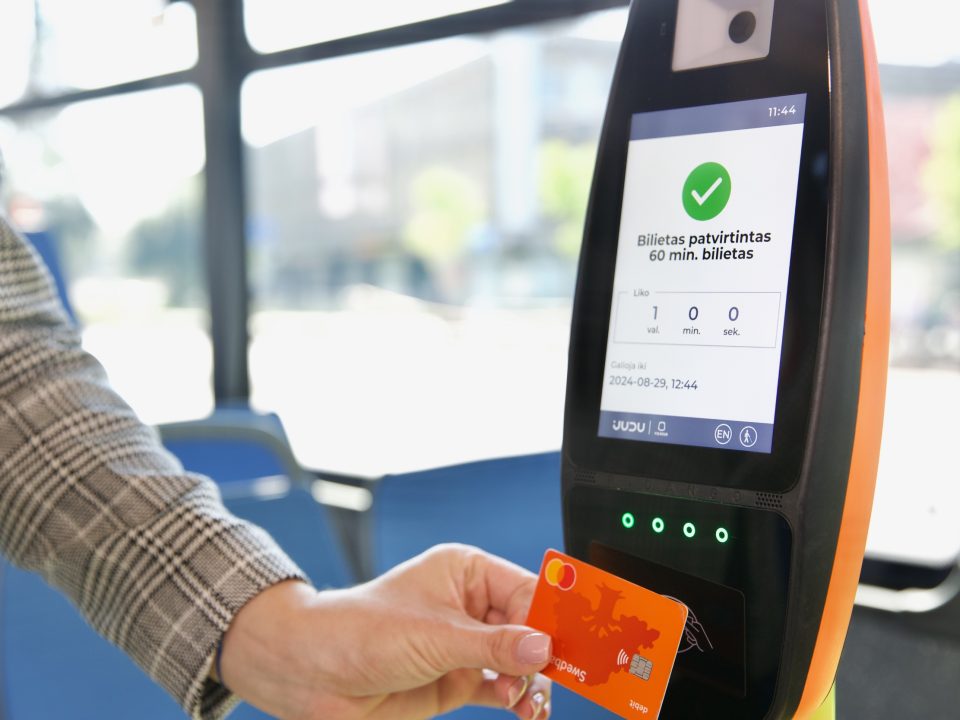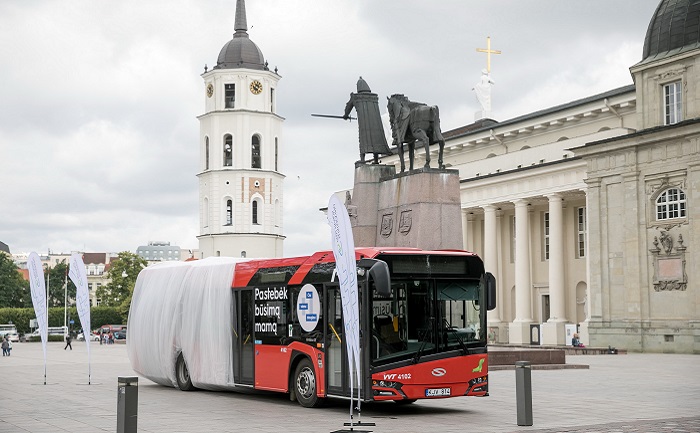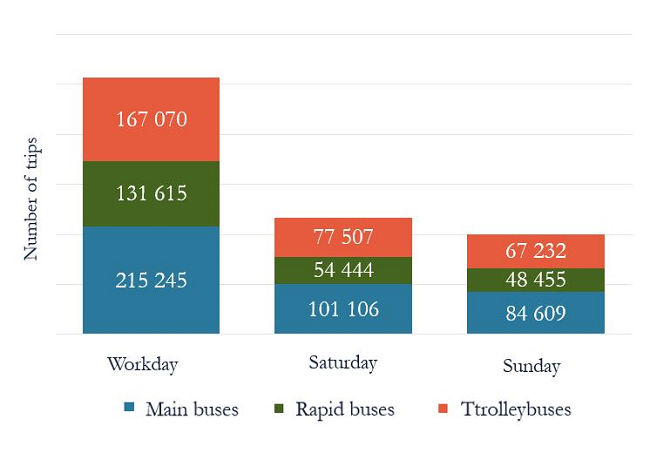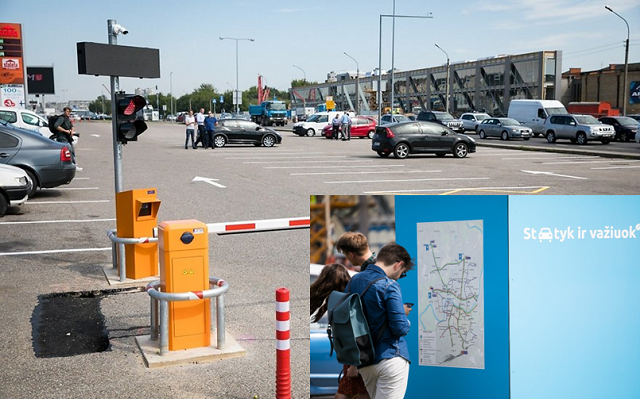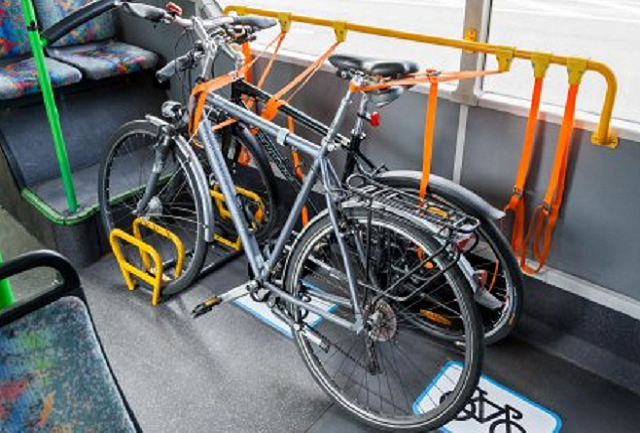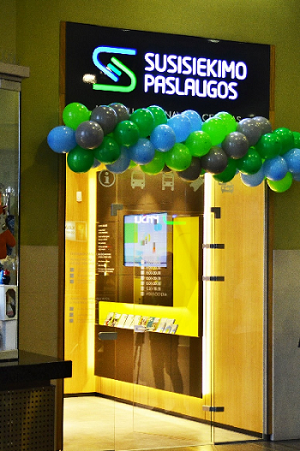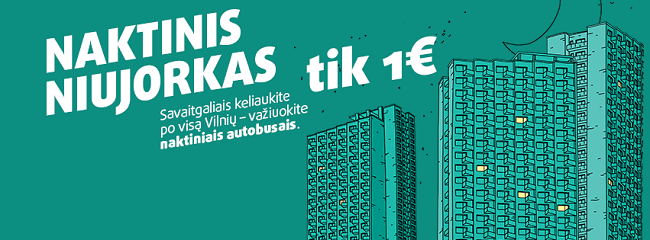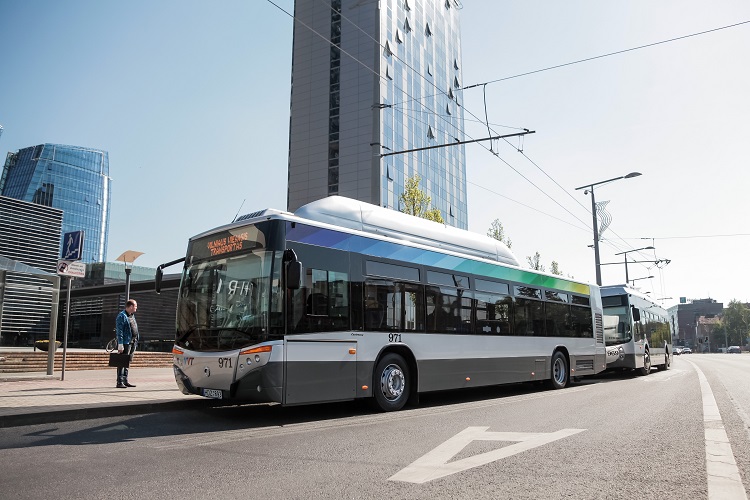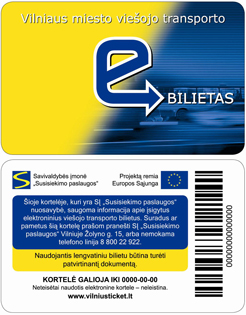Vilnius
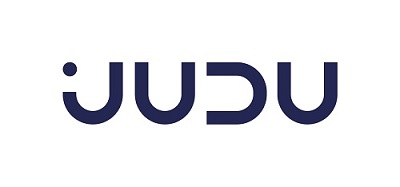
JUDU – Susisiekimo paslaugos
Laisvės pr. 10A, B korpusas,
LT-04215 Vilnius
Lithuania
LT-10209 Vilnius
Lithuania
Are you a registered member of EMTA? Log-in to access contact details.
Basic information
Name of the public transport authority: JUDU – Municipal enterprise “Communication services”
Name of the PTA in local language: JUDU – SĮ (Savivaldybės įmonė) „Susisiekimo paslaugos“
Geographical area: All the 21 districts within the territory of Vilnius City Municipality. 21 of the bus routes are extended to the area of Vilnius District Municipality.
Inhabitants in the PTA area: 0.6 million
Responsibilities
Ticketing:
JUDU is responsible for all matters related to ticketing. This includes ticket inspection, electronic ticketing systems (e.g. e-ticket validators), ticket sales and pricing. JUDU decides the ticket prices, but they must be approved by the City Council of Vilnius. JUDU is also planning to introduce a contactless payment system (cEMV) on its ticket validators in the autumn of 2024, after which the service will be completely cashless.
Procurement:
The procurement process is tender-based. Therefore, JUDU’s responsibilities include issuing tender invitations, defining specifications, evaluating, and selecting vendor proposals, negotiating contracts and ensuring compliance with procurement regulations.
Rolling stock and depot ownership:
Operators own the rolling stock and are responsible for its maintenance. The operators also own the depots, and the rolling stock is entirely their property. The only exception is the largest (in-house) operator, VVT (Vilniaus Viesasis Transportas (Public Transport of Vilnius)). Although it is a private company, it is owned by the Vilnius City Municipality (100% shareholder). This operator is also the only one that operates trolleybuses in addition to buses.
Public transport planning:
JUDU is fully responsible for all aspects of public transport planning, including timetables, contracting, monitoring operators, route planning, and infrastructure as well as its maintenance.
Development of mobility policy / Transport system planning:
The PTA’s long-term plans are always drawn up for the next 10-15 years and cover not only public transport but also cycling (cycle route planning, development of cycle infrastructure such as paths and storage), pedestrians (planning of universal design to meet all mobility requirements) and car infrastructure (car parking inspection, control of road maintenance works, on-street/off-street parking) and traffic management (traffic signalling and signage). All these different areas of activity are in line with our Sustainable Mobility Plan, which is the strategy for how the different modes of mobility should be promoted in the long term to make them more accessible to all citizens.
Marketing of public transport:
JUDU has a marketing team, which is responsible for communicating with public institutions and the press, as well as maintaining B2B and B2C relationships. The marketing team is also responsible for the visual identity of JUDU. They promote the services offered by JUDU, including the planning of commuter routes for various companies.
Passenger information:
We provide centralized passenger information on LCD screens both at stops and inside newer vehicles, and make all timetables and real-time information available on our own website (www.stops.lt) and on the official m.Ticket app. JUDU is also in the process of introducing a new type of real-time passenger information system – e-paper boards – to make passenger information more widely available. We currently hold a contract with a third-party app called Trafi, which provides a convenient way to plan routes, and check timetables and real-time arrival times. In 2024, JUDU is planning to launch an official JUDU app, which will provide all the functions mentioned above, including a common interface for parking payments and bicycle/pedestrian route planning.
Organisational model
Municipal department
Transport service contracting
Procured by the PTA: urban buses, regional buses within the PTA, trolleybuses
Current developments
As of 2024:
The Vilnius City Council recently approved an international public procurement project to enhance public transport services in the city. The PTA has launched an open tender in search of new operators to take over the packages of existing routes (already served by other operators) and those yet to be launched. The current plan is to complete the evaluation of operators and sign the contracts by the end of 2024.
This procurement would not only allow 12 new routes to be added to the system and corrections to be made to 46 routes, but also the new rolling stock will be fully electric (297 additional vehicles), the frequency of existing 44 services will be increased, and greater competition will be introduced between operators to improve working conditions and the quality of passenger service.
One of the route packages will require some lines to be served by metrobuses (24-metre bi-articulated buses), which will become a new mode of public transport in our system.
The largest (in-house) operator has an ongoing production of new autonomous trolleybuses that can run off-grid for certain distances, making them more versatile than the current trolleybuses in the system. By 2026, the in-house operator will have 159 new autonomous trolleybuses, of which 68 will be 18-metre articulated ones.
This year, we are participating in an EU-funded project called Embracer, in which we will introduce the first driverless autonomous passenger shuttle that will serve a small area in the city centre. This is a one-month pilot project to test the infrastructure conditions for autonomous vehicles, the viability of the service, passenger satisfaction and the reliability of the technology. Vilnius also plans to introduce 16 hydrogen-powered buses to the system by 2027, along with the opening of the city’s first green hydrogen plant based on electrolysis technology.
